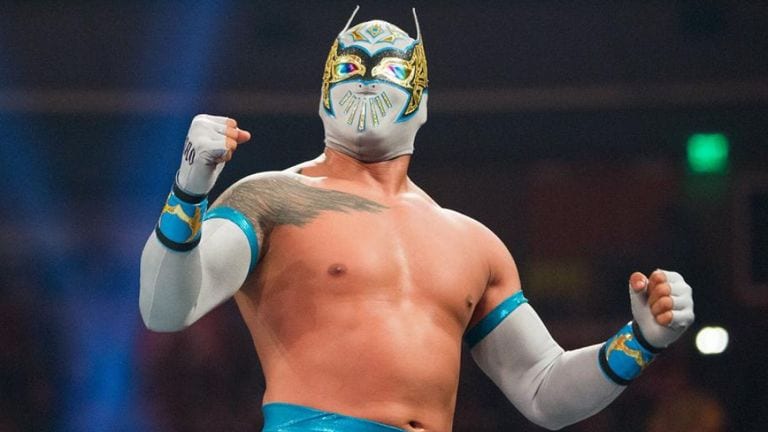
Former WWE Superstar Cinta de Oro felt that he was better than half the roster during his WWE run, but was never given the chance to succeed.
De Oro is best known for his run as the second Sin Cara that was introduced after the original was suspended in 2011. He would also spend a portion of his run as Hunico.
On a recent edition of the “Wrestle Binge” podcast, de Oro spoke about his run as Hunico and feeling WWE didn’t give him a fair shot. He said,
“I really felt that they never really gave me an opportunity to succeed under Hunico, you know. Then I got injured a year after that, tore my ACL. So, I was out for another year… In every company, it’s hard. It’s not about just one company. Overall, if you look at the wrestling scene, there’s not enough companies in the world like Soccer teams.
“We are very limited you know… to become a star. I am talking of my own experience. Everybody has a different experience. For me, I felt I was more talented than half of the roster, to be honest, many times, the people I got to wrestle with. But I also understood it was a business.”
De Oro became an NXT Tag Team Champion in 2014 when he won the titles with Kalisto. He requested and was granted his release from WWE in late 2019.
Former WWE Superstar Cinta de Oro, better known as Sin Cara and Hunico during his time in the company, recently expressed his frustration with not being given a fair chance to succeed in WWE. Despite feeling that he was more talented than half of the roster, de Oro believes that the limited number of wrestling companies worldwide makes it difficult for wrestlers to become stars.
De Oro’s journey in WWE began when he was introduced as the second Sin Cara in 2011, taking over the character after the original performer was suspended. He later transitioned into the role of Hunico. However, during a recent appearance on the “Wrestle Binge” podcast, de Oro revealed that he felt WWE never truly gave him an opportunity to succeed as Hunico.
The frustration of not being given a fair shot was compounded by a significant injury de Oro suffered. Just a year after his transition to Hunico, he tore his ACL, which forced him to be out of action for another year. This setback further hindered his chances of making a mark in WWE.
De Oro’s sentiments about the wrestling industry extend beyond his personal experiences. He believes that the lack of wrestling companies worldwide limits opportunities for wrestlers to become stars. Drawing a comparison to soccer teams, de Oro suggests that there should be more companies in the wrestling scene to provide more avenues for talent to shine.
Despite feeling overlooked, de Oro did achieve some success during his time in WWE. In 2014, he became an NXT Tag Team Champion alongside Kalisto. However, he ultimately decided to request his release from the company in late 2019.
The frustrations expressed by de Oro are not uncommon in the world of professional wrestling. Many talented performers have felt underutilized or overlooked by major promotions. However, it is important to remember that professional wrestling is ultimately a business, and decisions are often made based on various factors such as marketability, storylines, and audience reception.
While de Oro may have felt that he was more talented than half of the roster, it is essential to recognize that success in professional wrestling is subjective and influenced by various factors. Different wrestlers have different experiences and opportunities within the industry.
As the wrestling landscape continues to evolve, it is possible that more opportunities will arise for talented performers like de Oro. The emergence of independent promotions and the global reach of platforms like streaming services have provided alternative avenues for wrestlers to showcase their skills and gain recognition.
In conclusion, former WWE Superstar Cinta de Oro, also known as Sin Cara and Hunico, recently expressed his frustration with not being given a fair chance to succeed in WWE. Despite feeling that he was more talented than many of his peers, de Oro believes that the limited number of wrestling companies worldwide hinders wrestlers’ opportunities to become stars. While his personal experiences may have been disheartening, it is important to recognize that success in professional wrestling is subjective and influenced by various factors.
